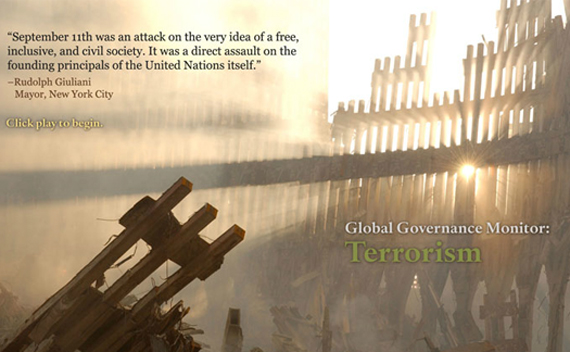The Unsung Success after 9/11: Multilateral Cooperation
CFR’s International Institutions and Global Governance program traces the unprecedented global cooperation in the wake of the horrific 9/11 attacks.
By experts and staff
- Published
By
- Stewart M. PatrickJames H. Binger Senior Fellow in Global Governance and Director of the International Institutions and Global Governance Program

As the world reflects on the horrific attacks of 9/11, we have an opportunity to reassess the global community’s response to terrorism. CFR’s International Institutions and Global Governance program just released its latest interactive component on the global fight against terrorism, which traces the unprecedented global cooperation in the wake of the horrific 9/11 attacks. It also analyzes the complex and myriad transnational strategies to combat the threat, ranging from intelligence sharing to UN Security Council action against terrorist financing—and outlines remaining gaps in international prevention and response that continue to leave citizens exposed to terrorism.
First launched in 2009, the Global Governance Monitor tracks multilateral efforts to address global challenges. Similar to the guide’s six other issue-specific components assessing the nonproliferation, finance, oceans governance, climate change, armed conflict, and the public health regimes, the new chapter on terrorism includes:
- A brief video explaining the challenges presented by terrorism and the urgency of improving global counterterrorism efforts.
- A graphic timeline tracing the history of terrorism as well as counterterrorism initiatives, from 1881 through the present.
- An issue brief summarizing the status of the multilateral terrorism prevention and response regime, with steps the United States can take to address gaps in the regime.
- A matrix cataloging international agreements, institutions, and organizations related to terrorism, including their coverage, strengths, and shortcomings.
- An interactive map detailing flashpoints in the fight against terrorism as well as the international agencies that attempt to manage these challenges.
- A list of resources, including foundational texts, essential documents, recent articles, and CFR scholars on the subject.
As I noted two weeks ago, the issue brief concludes with five core policy recommendations for the international community to address the threat: